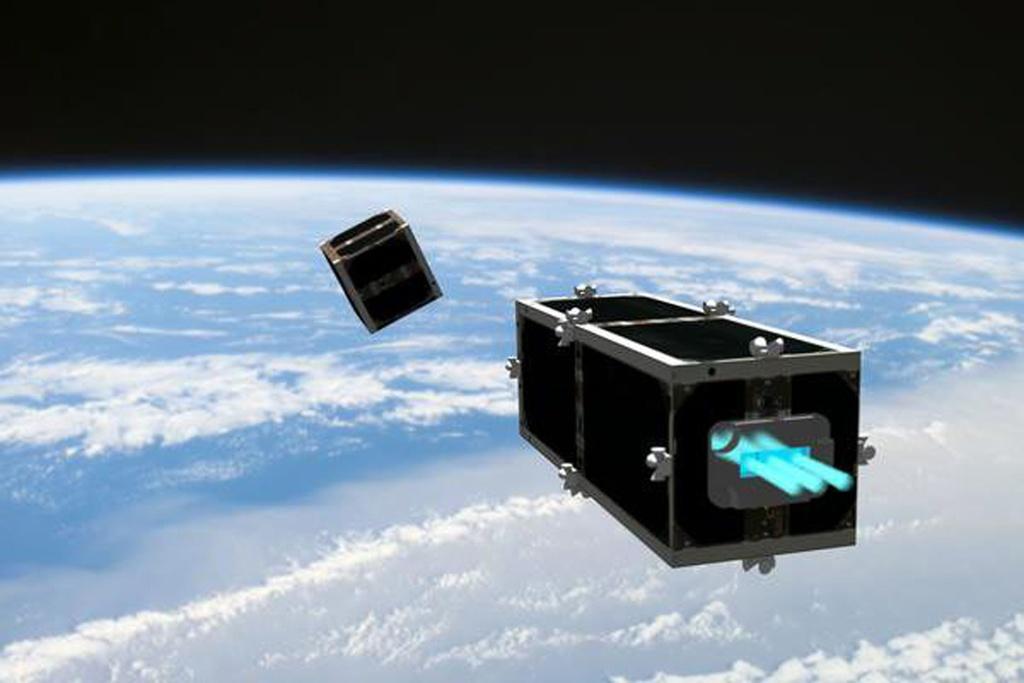
Swiss start-up embarks on space cleaning mission

Cleaning up space is the mission of a new Swiss start-up, ClearSpace, which will capitalise on technology developed by engineers at the Swiss Federal Institute of Technology Lausanne (EPFL).
“We have no option but to clear space debris from Low Earth Orbit,” said ClearSpace CEO Luc Piguet in a statement published by EPFL on Friday. “The viability of satellite technologies, which are an increasingly important part of our lives, is at stake.”
Engineers at EPFL’s Space Center came up with a way of capturing and eliminating debris accumulated over six decades of low-orbit activities. Their start-up aims to develop and market the technology behind a junk-clearing satellite that catches debris orbiting Earth.
For the first test mission, slated for 2024, the company wants to dismantle SwissCube, a nanosatellite developed by students from EPFL and other Swiss universities and launched on September 23, 2009.
ClearSpace’s satellite features a tapered net that shoots out, grabs a piece of debris and then retracts, trapping the junk in its clutches.
Cluttered
The long-term goal is to launch a platform carrying multiple satellites in order to clear more than 3,000 derelict satellites orbiting near our planet.
Ever since the world’s first satellite was launched in 1957, space has become increasingly cluttered with all kinds of junk – as small as a nut and as large as a bus. Fast-moving debris, flying around the planet at some 8 km/s, poses an ever-growing threat to spacecraft and crew.
The problem is particularly acute in what scientists call the Low Earth Orbit, the area between the edge of the Earth’s atmosphere to 2,000 kilometres above the surface of the planet.
ClearSpace has a collaboration agreement with EPFL, focusing largely on the question of technology transfer. The start-up has also secured funding from the European Space Agency (ESA).

In compliance with the JTI standards
More: SWI swissinfo.ch certified by the Journalism Trust Initiative
















![The four-metre-long painting "Sonntag der Bergbauern" [Sunday of the Mountain Farmers, 1923-24/26] had to be removed by a crane from the German Chancellery in Berlin for the exhibition in Bern.](https://www.swissinfo.ch/content/wp-content/uploads/sites/13/2025/12/01_Pressebild_KirchnerxKirchner.jpg?ver=bb19e376)














You can find an overview of ongoing debates with our journalists here . Please join us!
If you want to start a conversation about a topic raised in this article or want to report factual errors, email us at english@swissinfo.ch.